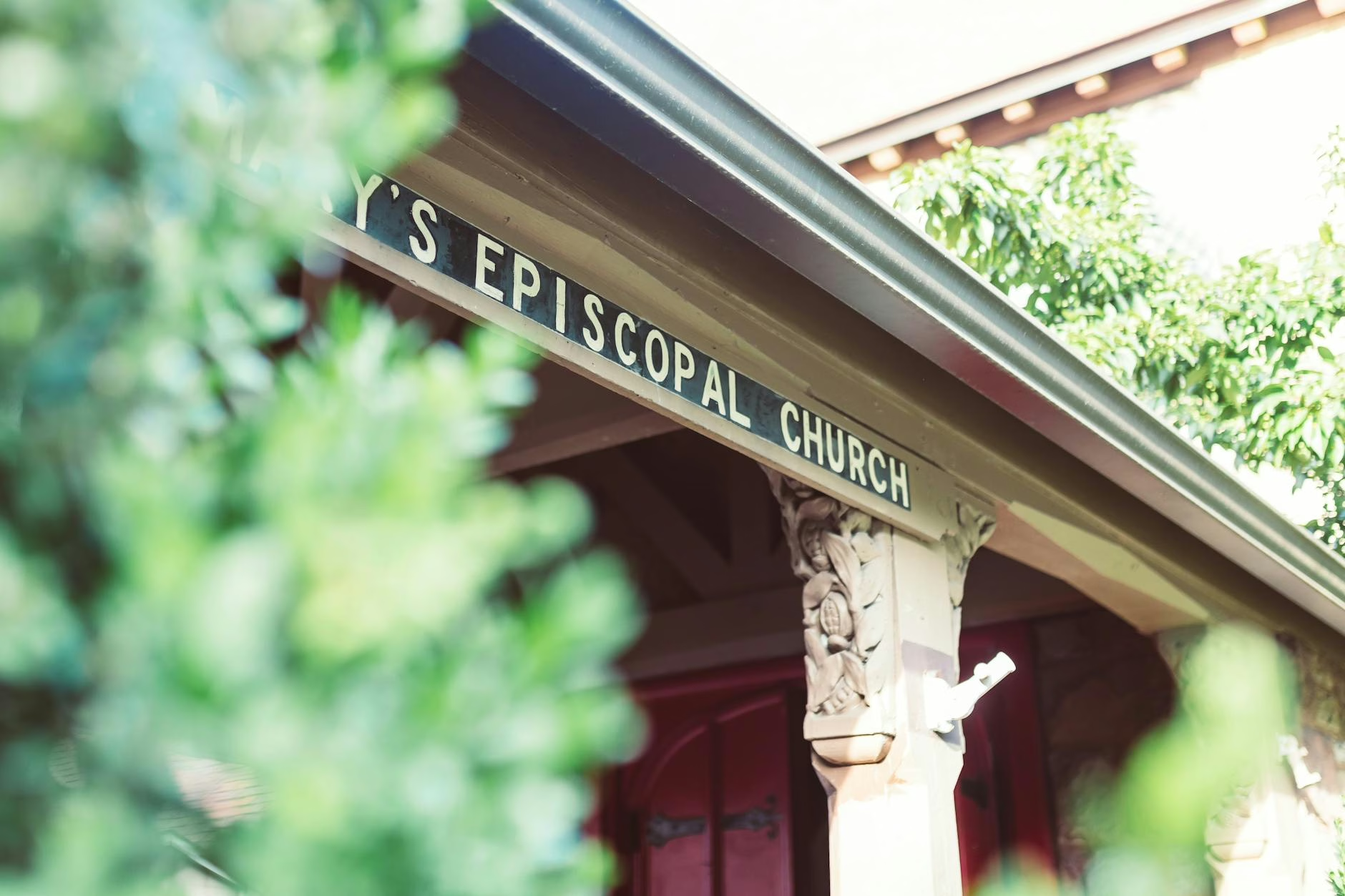What’s the difference between the Episcopal Church and the Anglican Church?
One of the most frequent questions I get as an Anglican priest in California is, “What’s the difference between the Episcopal Church and the Anglican Church?” While both share roots in the Church of England, the Anglican Church in North America (ACNA) and The Episcopal Church (TEC) have diverged significantly over the last few decades. From theology and liturgy to social issues and global affiliations, the contrast between these two Anglican provinces is more than symbolic, but point to a deeper divide among what it means to be a prayerbook Christian of the English tradition.
In this blog, I’ve chosen 5 differences between the Episcopal and Anglican Churches, that help people understand why these two churches are not able to be one denomination.
While there may be individual parishes and members who do not align with the contrasts presented below, the comparisons are based on official statements and widely accepted teachings within each denomination.
1. View of Scripture
ACNA View: embraces a more traditional view of Scriptural authority.
“We confess the canonical books of the Old and New Testaments to be the inspired Word of God, containing all things necessary for salvation, and to be the final authority and unchangeable standard for Christian faith and life.“
Source: Fundamental Declarations of the Province
Episcopal View: allows for broader interpretive latitude and represents a theological liberal view of Scripture.
“Because Episcopalians understand holy scripture to be at once inspired by God yet the work of human authors, editors, and compilers, we embrace the notion that the Bible contains all things necessary to salvation—but that not everything contained in the Bible is necessary to salvation. Episcopalians believe the Holy Spirit guides us in our continually growing understanding of the Scriptures… Our dynamic relationship with the Word of God and our experience of faith overtime result in varying interpretations of scripture. The revelation of God in Christ calls us, therefore, to participate in our relationship with God and one another in a manner that is at once faithful, loving, lively, and reasonable. As Christians, we look to our own Scripture for insight about God. We also understand that wisdom can be found in the scriptures and teachings of other religions.”
2. Sexual Ethics
ACNA View: defines marriage as between a man and a woman, explicitly opposing same-sex marriage.
“The Anglican Church in North America affirms our Lord’s teaching that Holy Matrimony,
commonly called a Sacrament (Article 25 and ACNA Catechism 124-125), is a lifelong covenant
between one man and one woman, binding both to self-giving love and exclusive fidelity”Source: https://anglicanchurch.net/wp-content/uploads/2025/06/ACNA-Constitution-and-Canons-2024.pdf
Episcopal View: affirms LGBTQ+ in canon law, rites, and public statements.
“Today in The Episcopal Church, discernment for the ministries of bishop, priest, deacon, and lay leadership is open to all without discrimination. We celebrate and give thanks for the beauty, strength, and sacred worth of LGBTQ+ leaders across all contexts and callings…
…in the summer of 2015, just five days after the Supreme Court of the United States ruled that same-sex couples had the legal right to marry, General Convention voted to amend the canons of The Episcopal Church that regulate marriage, permitting any couple the rite of Holy Matrimony.”
Source: https://www.episcopalchurch.org/organizations-affiliations/lgbtq/history/
3. Ordination of Women
ACNA View: “Dual Integrity” some diocese allow female deacons; some dioceses allows females in priesthood; constitution explicitly bans women bishops. Some diocese have male-only orders for deacons and priests (e.g. REC Dioceses).
“To be a suitable candidate for the episcopate, a person must:
…Be a male Presbyter at least 35 years old;”
“The Province shall make no canon abridging the authority of any member dioceses or networks (whether regional or affinity-based) and those dioceses banded together as jurisdictions with respect to its practice regarding the ordination of women to the diaconate or presbyterate.”source: https://anglicanchurch.net/wp-content/uploads/2025/06/ACNA-Constitution-and-Canons-2024.pdf
Episcopal View: Has ordained women as deacons and priests since the 1970s and as bishops since 1989 and mandates equality in every order.
“The provisions of these canons for the admission of Candidates, and for the Ordination to the three Orders: Bishops, Priests and Deacons shall be equally applicable to men and women.”
Source: https://www.episcopalarchives.org/cgi-bin/acts/acts_resolution-complete.pl?resolution=1976-B005
4. Book of Common Prayer
ACNA view: Introduced the 2019 BCP, which claims roots in 1662 prayerbook tradition but also allows the use of historic prayerbooks such as the American 1928 BCP.
Link: 2019 Book of Common Prayer
Episcopal view: Uses the 1979 BCP, featuring liturgical modernization and inclusive and non-gendered language and occasional services for progressive figures.
Link: 1979 Book of Common Prayer
5. Global Anglican Relations
ACNA View: In communion with GAFCON and the Global South, independent of Canterbury recognition—but represents 85% of active Anglicans based on Sunday attendance. (source) The “Global South” of Anglicanism is a coalition of provinces from countries such as Nigeria, Uganda, Kenya, Rwanda, South Sudan, Myanmar, and parts of South America, which rejects Canterbury as the Communion’s defining center.
The ACNA, though not officially recognized by Canterbury, is considered by these provinces to be the legitimate Anglican presence in North America.
Link: the Kigali Statement
Episcopal Church: Maintains official ties to Canterbury. Member of the Anglican Communion—a relatively recent development of the 19th century, a voluntary association of national churches in communion with the Archbishop of Canterbury, who serves as a symbolic figure of unity rather than a governing authority.
“The Anglican Episcopal family comprises tens of millions Christians who are members of 46 different Churches.” List of member churches: https://www.anglicancommunion.org/structures/member-churches.aspx
While the Episcopal Church retains full recognition within the structures of the Anglican Communion (such as the Lambeth Conference, Anglican Consultative Council, and Primates’ Meetings), its actions—especially regarding sexuality and marriage—have led to impaired or broken communion with many Global South provinces.
“Impaired relations between some provinces were made plain by the absence of three Anglican provinces at ACC-18. Leaders of the provinces of Nigeria, Uganda and Rwanda have not participated in the Instruments of Communion for at least 15 years because of their objections to some provinces’ ordination of openly gay and lesbian clergy and adoption of marriage rites and blessings for same-sex couples.”
Link: Global South archbishops reject Welby’s leadership role, vow to ‘re-set’ Anglican Communion



Leave a Reply